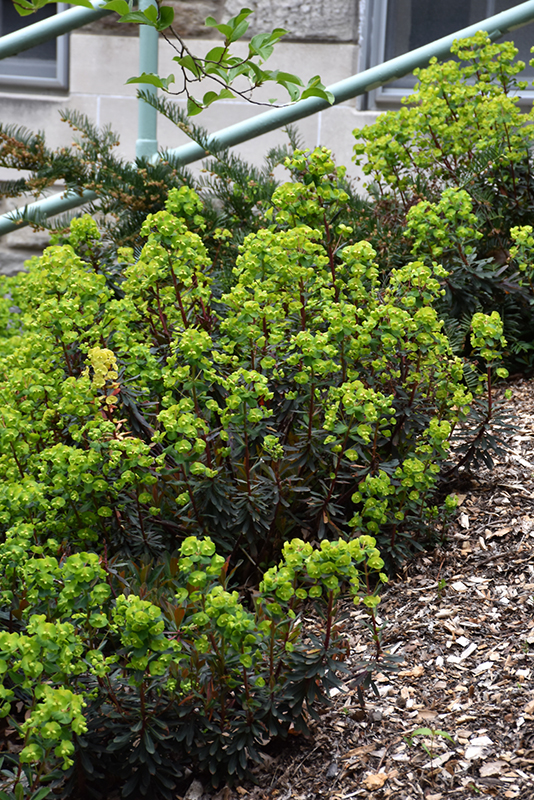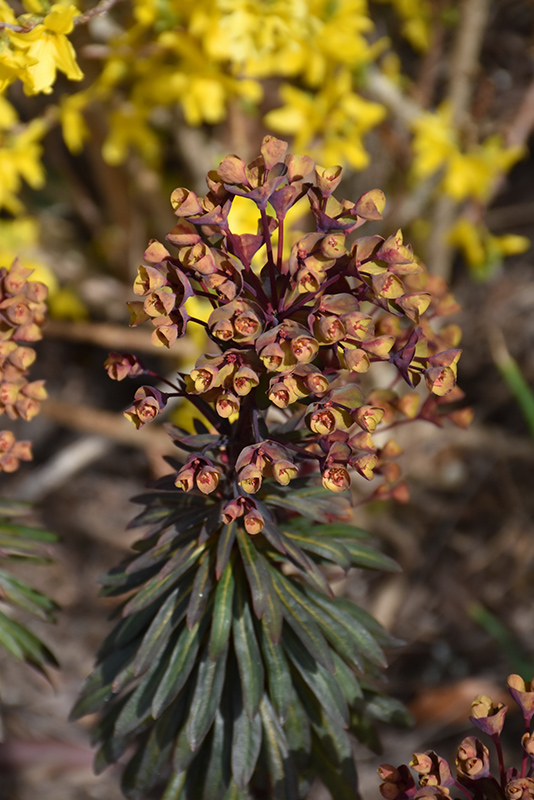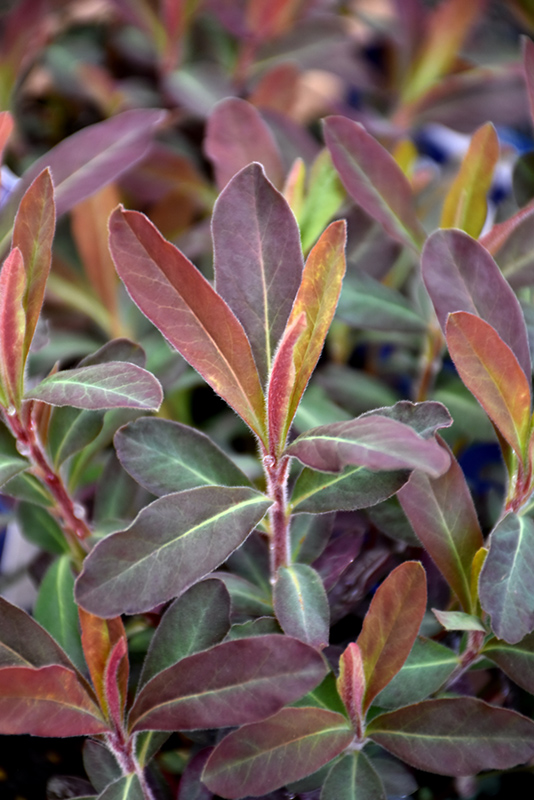Plant Search Tool
This is a 3rd party Knowledgebase and does not reflect actual stock
Purple Wood Spurge
Euphorbia amygdaloides 'Purpurea'
Height: 18 inches
Spacing: 12 inches
Sunlight:
![]()
![]()
Hardiness Zone: 5a
Description:
This fantastic foliage plant will provide excellent contrast in the garden or in pots with its rich burgundy new foliage showing off against the deep dark green leaves that take on a reddish blush in cooler weather
Ornamental Features
Purple Wood Spurge has masses of beautiful cymes of chartreuse round flowers with yellow overtones at the ends of the stems from mid spring to early summer, which are most effective when planted in groupings. Its attractive narrow leaves emerge burgundy in spring, turning dark green in colour with curious red undersides. As an added bonus, the foliage turns a gorgeous burgundy in the fall.
Landscape Attributes
Purple Wood Spurge is an herbaceous perennial with a mounded form. Its medium texture blends into the garden, but can always be balanced by a couple of finer or coarser plants for an effective composition.
This is a relatively low maintenance plant, and should only be pruned after flowering to avoid removing any of the current season's flowers. Deer don't particularly care for this plant and will usually leave it alone in favor of tastier treats. It has no significant negative characteristics.
Purple Wood Spurge is recommended for the following landscape applications;
- Mass Planting
- Rock/Alpine Gardens
- Border Edging
- General Garden Use
- Container Planting
Planting & Growing
Purple Wood Spurge will grow to be about 15 inches tall at maturity, with a spread of 18 inches. When grown in masses or used as a bedding plant, individual plants should be spaced approximately 12 inches apart. Its foliage tends to remain dense right to the ground, not requiring facer plants in front. It grows at a medium rate, and under ideal conditions can be expected to live for approximately 8 years. As an herbaceous perennial, this plant will usually die back to the crown each winter, and will regrow from the base each spring. Be careful not to disturb the crown in late winter when it may not be readily seen!
This plant does best in full sun to partial shade. It is very adaptable to both dry and moist growing conditions, but will not tolerate any standing water. It is considered to be drought-tolerant, and thus makes an ideal choice for a low-water garden or xeriscape application. It is not particular as to soil pH, but grows best in sandy soils. It is highly tolerant of urban pollution and will even thrive in inner city environments. This is a selected variety of a species not originally from North America, and parts of it are known to be toxic to humans and animals, so care should be exercised in planting it around children and pets. It can be propagated by cuttings; however, as a cultivated variety, be aware that it may be subject to certain restrictions or prohibitions on propagation.
Purple Wood Spurge is a fine choice for the garden, but it is also a good selection for planting in outdoor pots and containers. It is often used as a 'filler' in the 'spiller-thriller-filler' container combination, providing a mass of flowers and foliage against which the thriller plants stand out. Note that when growing plants in outdoor containers and baskets, they may require more frequent waterings than they would in the yard or garden. Be aware that in our climate, most plants cannot be expected to survive the winter if left in containers outdoors, and this plant is no exception. Contact our experts for more information on how to protect it over the winter months.








